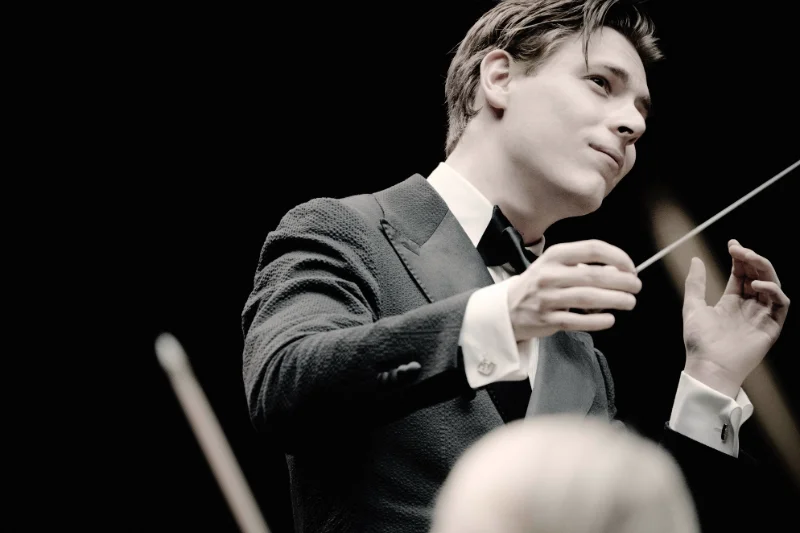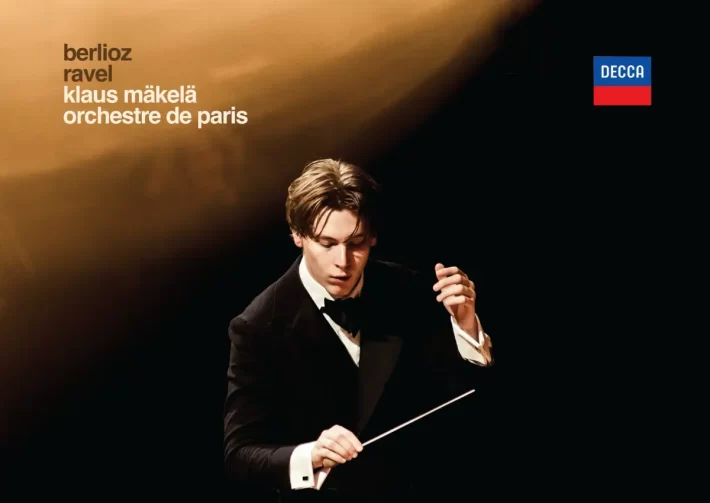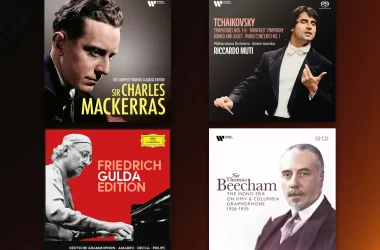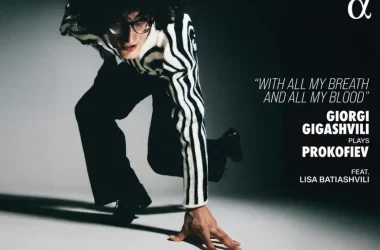Klaus Mäkelä and his Orchestre de Paris enter an immensely competitive field with their latest release: Apple Music Classical lists 318 recordings of Berlioz’s ‘Symphonie Fantastique,’ including the feted Munch and Bernstein recordings (both on Warner Classics) with French forces. The number of ‘La Valse’ recordings is similar.

The opening of ‘Symphonie Fantastique’ is atmospheric, the playing beautifully refined. But the Allegro agitato e appassionato is less agitated and passionate than I would want, Mäkelä’s emphasis on beauty of playing coming at the expense of programmatic narrative. Some will argue this is a more classical approach, like Colin Davis (Concertgebouw/Philips) and Marek Janowski (Pittsburgh/Pentatone). But in those performances, the storytelling is far more potent. Tilson Thomas’s first San Francisco recording (RCA/Sony) has playing of even greater finesse that also expresses Berlioz’s obsessive emotions far more convincingly.
The ‘Valse’ is surprisingly heavy and inflexible. Despite an admirable transparency that reveals much inner detail, this music requires greater buoyancy and flexibility. ‘Scene in the Country’ is simply too slow: the faster tempos set by Bernstein, Janowski and Munch are most welcome. I appreciated the ‘simple’ wind playing heard in the opening measures, suggesting the shepherd’s piping. But the reading remains stubbornly earthbound, missing much of the regret and sadness that drove the artist into the country in the first place. Both Tilson Thomas and Davis are just as slow, but they are better at energizing the long line and conveying the emotions behind the notes.
Mäkelä’s tempo for ‘March to the Scaffold’ is spot on, but the brass sound and attack suggest coronation rather than beheading. Listen to the dread and trepidation conjured by this same orchestra in the Munch and Bernstein recordings to understand what is missing here. Decca’s plush, reverberant recording, which places the listener towards the back of the hall, contributes to this issue. Yet the strings are always present, often time too much so, as at 1’15” where they almost overtake the chortling bassoons, even though they carry the primary material. Throughout the reading, the orchestra creates a blended, homogenous sound often at odds with Berlioz’s wildly original heterogeneous palette.
The lover string line heard in the opening of the final movement lacks mystery (and is too loud), followed by wind glissandos that fail to conjure any sense of the spectral. Despite an excellent tempo, the hectoring E-flat clarinet’s is far too polite. The bassoon and trombone, as they intone the ‘Dies irae’ theme, is fabulous, but the responding high brass lacks requisite bite. The fugue is precise and clear but does not invoke the wild mockery Berlioz intends. A sudden burst of energy at the arrival of the Coda makes for an exciting end to an uneven, unconvincing interpretation.

Klaus Mäkelä (image: ©️ Marco Borggreve, Oslo Philharmonic)
Mäkelä’s ‘La Valse’ is similar: the opening gentle and lyrical when it should be muscular and forbidding. Throughout, the playing is lovely (particularly captivating around 2’10”), but again, there is too little rubato, The passage at 6’35” is delicate and undeniably gorgeous, but the energy built up since the beginning just drains away. The tam-tam drenched climax underwhelms, and the coda’s implosion lacks the devastation experienced in performances by Boulez (Berlin/DG), Rattle (CBSO/Warner Classics), and Karajan with this same orchestra (Warner Classics).
As is surely clear by now, I very much see this music highly emotional and programmatic and am drawn to performances that have a similar view. There is no denying the excellence of the playing, nor that the orchestra is giving Mäkelä exactly what he wants.
In March 2024 these same musicians performed at Carnegie Hall; several reviews mentioned impressive levels of energy, drive and emotional communication; qualities lacking in this new release. Perhaps Mäkelä is better live than in the studio. I have reviewed all six of his Decca albums and have consistently argued that he prioritizes technical perfection and aural beauty at the expense of the music’s drama. That is particularly the case here.
Recommended Comparisons (Berlioz)
Munch | Bernstein | Davis | Beecham | Tilson Thomas

Album Details |
|
|---|---|
| Album name | Berlioz Ravel |
| Label | Decca |
| Catalogue No. | 4870959 |
| Artists | Orchestre de Paris, Klaus Mäkelä |


















